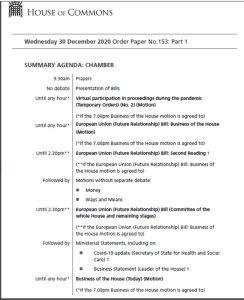7th January 2021
Yesterday we watched, in real-time, an attempted coup in the United States.
Was it an attempted coup?
Some are already fussing about the ‘coup’ word – that it was merely a security violation, a mere matter of public order.
That view is not correct, for three reasons.
It was an attempted coup.
*
First, an essential constitutional stage for a peaceful transfer of power was disrupted.
The constitutional stage – usually a formality – was the certification of the electoral college vote by congress.
It is this certification that would make the inauguration of a new president happen on 20 January 2021 by automatic operation of law.
No certification, no certainty of inauguration of a new president.
The disruption was the object and the effect of the disorder.
And until and unless the electoral college vote is certified then the 20 January inauguration is uncertain.
(The resumed Congress is still considering the electoral college votes as I type.)
*
Second, the disruption was at the behest of the losing candidate – or, if you nod-along with plausible deniability, it was at least done so as to ensure he stayed in office.
It was disruption with the purpose of keeping a losing candidate in office.
And that candidate then praised these ‘special’ people for what they did.
Indeed, for the candidate’s daughter, these disruptors were ‘patriots’.
*
And third, the disruption was forceful.
The mob forced their way in, and there are reports of fatalities and injuries.
This was not a peaceful protest or an exercise in civil disobedience.
*
So a group (a) used force to (b) disrupt an essential constitutional process (c) at the behest of (or in the interests of) a politician – and if that disruption had succeeded, the inauguration of a new president would have been rendered uncertain.
That was an attempt at a coup.
*
One significant detail in what happened yesterday was that the order to deploy the national guard came from the vice president, not the president.
As Sherlock Holmes would have said, this was a ‘curious incident‘.
This means that, left to the president, there would have been insufficient coercive power to disperse the mob.
As any A-level history student knows – or should know – for a rebellion to succeed requires not only rebels, but also a weakness in the regime that is being rebelled against.
Usually the weaknesses of the regime are not deliberate.
But here the president seems to have wanted to maximise the disruptive power of the mob.
*
Another significant detail is how light-touch the policing was generally.
As a liberal, I am all in favour in light-touch policing.
The priority in such a situation should be public safety rather than the use of brutal – or lethal – force.
Yet the contrast with the policing of, say, the Black Lives Matter protest is stark – and telling.
If those who rioted yesterday had different colour skins then they would have been no doubt arrested or shot by police officers dressed up like Robocops.
Instead, there were hardly any arrests, and the rioters were just allowed to go home.
The photographs of some of the rioters – posing here and there in the Capitol – would be unthinkable if they were not white.
What happened yesterday was an expression of white privilege.
*
This attempted coup is what you get when politicians play with the monster of populist nationalist authoritarianism.
So often in history, politicians believe they can tame this beast, and that the beast will serve them.
And those politicians usually end up being devoured by the creature.
*
Today, it look like the attempt at a coup failed, and that the new president will be inaugurated on 20th January 2021.
Yesterday was a contest between constitutionalism and violent populism.
It was not inevitable that constitutionalism would always win this contest.
*****
If you value the free-to-read and independent legal and policy commentary please do support through the Paypal box above.
Suggested donation of any amount as a one-off, £1 upwards per post found useful or valuable, or £4.50 upwards on a monthly profile.
This law and policy blog provides a daily post commenting on and contextualising topical law and policy matters – each post is published at about 9.30am UK time.
Each post takes time, effort, and opportunity cost.
Or become a Patreon subscriber.
You can also subscribe to this blog at the subscription box above (on an internet browser) or on a pulldown list (on mobile).
*****
Comments Policy
This blog enjoys a high standard of comments, many of which are better and more interesting than the posts.
Comments are welcome, but they are pre-moderated.
Comments will not be published if irksome.









